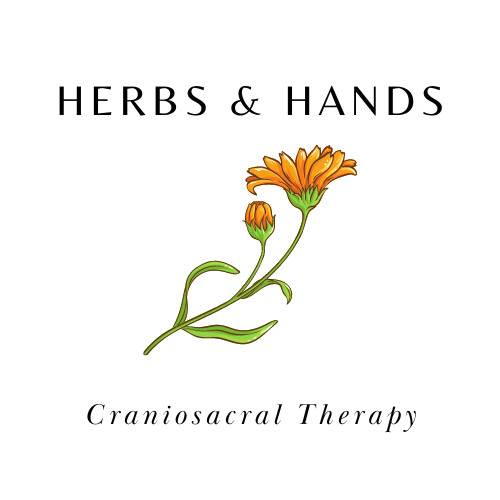Vitamin B1 & Health
This week, we will begin our wander through the B vitamins beginning with B1: thiamin. I’ve often seen people write about “vitamin B”, but this is quite misleading as there are eight different B vitamins! All play different roles in how we turn our food into energy and many other processes. I almost never recommend supplementing individual B vitamins, so please do not read these articles and start adding individual vitamins to your medicine cabinet. A good quality multivitamin/multimineral is a great addition to your whole-food, plant-based diet. If you believe you need focused supplementation of any individual nutrient, please consult with your healthcare providers to make sure you aren’t overlooking any potentially dangerous symptoms.
On we go!
What is Thiamin & What Does it Do?
Thiamin is a water-soluble vitamin found in many different foods.
Thiamin plays an important role in energy production. It is involved in the metabolism and energy extraction of carbohydrates, branched-chain amino acids, and fatty acids. (1) Without thiamin, we wouldn’t be able to make ATP - the chemical form of energy produced by our mitochondria (the powerhouse of the cell!).
Like most processes in our body, these functions need more than just thiamin. Without magnesium, our bodies would be incapable of turning the thiamine we eat into the active form our cells use. Luckily, the food sources of thiamin tend to also be good sources of magnesium - isn’t nature clever?
Disease Prevention:
Adequate levels of thiamin have been associated with lower incidence of diabetes and the vascular complications of diabetes that lead to vision issues, kidney failure, neuropathy, and loss of limbs. (1)
Severe thiamin deficiency results in a few different conditions: Beriberi (various forms) and Wernike’s encephalopathy - an irreversible condition of brain damage, memory loss, and vision changes.
Disease Treatment:
Thiamin shows promise in the treatment of several conditions and is key in the treatment of metabolic conditions that are screened for in infancy through that dreaded heel poke test. (1)
PDHC deficiency
Maple syrup urine disease
Thiamin responsive megaloblastic anemia
Biotin-responsive basal ganglia disease
In addition, thiamine may be helpful in the treatment of:
Alzheimer’s disease
Congestive heart failure
Mitochondrial dysfunction
Chronic oxidative stress (inflammation)
Daily Intake:
Healthy adults need between 1.1 and 1.2 mg of thiamin daily - not very much! Breastfeeding and pregnant people need a bit more at 1.4 mg daily. (1)
Certain conditions can increase the need for thiamin including:
Pregnancy
Breastfeeding
Fever
Strenuous physical exertion
Growth spurts
Malaria
HIV
Chronic alcohol intake
Use of diuretic medications, especially Furosemide
Use of Phenytoin - an anti-epileptic medication
Use of 5-Fluorouracil - a chemotherapeutic agent
Food Sources:
Good food sources of thiamine include whole grains, legumes, nuts, lean pork, and fortified refined grains.
Here are a few especially rich sources of thiamin: (1)
Wheat germ cereal - 1 cup: 1.88 mg
Long-grain brown rice - 1 cup: 0.19 mg
Green peas - ½ cup: 0.21 mg
Pecans - 1 oz: 0.19 mg
Pork - 3 oz: 0.81 mg
Remember, thiamin is a water-soluble vitamin, so don’t throw out your cooking water -- that’s where some of your water-soluble vitamins are!
Food Interactions:
It should also be noted that a high intake of certain foods can also deplete thiamin levels, so be careful with the following foods: (1)
Tea
Coffee
Betel nuts
Raw fish/shellfish
Ferns
African silkworms
Applications:
As always, eat your whole-food, plant-based diet incorporating a variety of different foods. A multivitamin/multimineral can be a reliable way to supplement your diet if you feel the need.
Be careful with the thiamin-depleting medications, foods, and alcohol to ensure you do not inadvertently end up with a deficiency.
If you are predisposed to Alzheimer’s disease, type 2 Diabetes runs in your family, or you have a high level of oxidative stress, consider a multivitamin for an extra boost of thiamin.
Alcohol & Thiamin
The relationship between alcohol and thiamin deserves its own special consideration.
Remember, there is no “healthy” level of alcohol consumption, but staying within moderate consumption levels can help you avoid the more severe complications of alcohol intake:
Estrogen dominant bodies:
7 drinks or fewer in a week
No more than 2 drinks in a 24 hour period
Testosterone dominant bodies:
14 drinks or fewer in a week
No more than 3 drinks in a 24 hour period
If you are currently struggling with alcoholism, please seek help. This is a personal as well as professional plea from me to you. Alcoholism runs heavily in many families, mine included, and I have lost an aunt to organ failure as a result of alcoholism and an uncle to Wernike’s encephalopathy.
There we have it, our first B vitamin explored! Next week, we will take a look at vitamin B2: Riboflavin.
To our health!
References:
Higdon, J. “Thiamine” Linus Pauling Institute. 2000, updated: 2013, accessed September, 24, 2021: https://lpi.oregonstate.edu/mic/vitamins/thiamin
